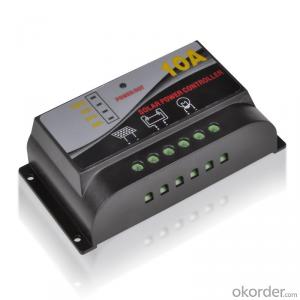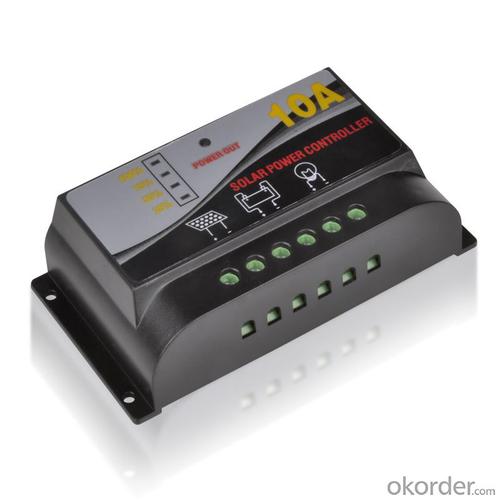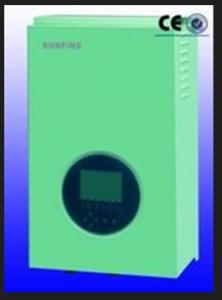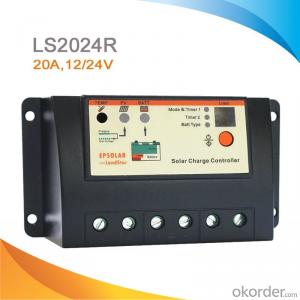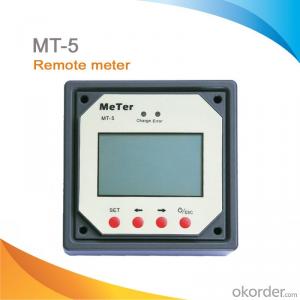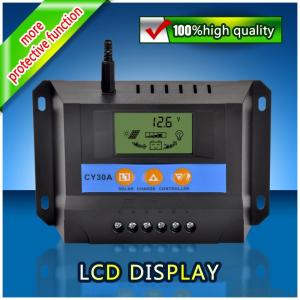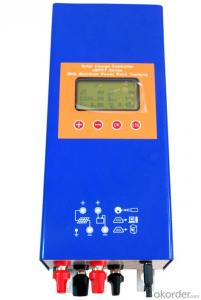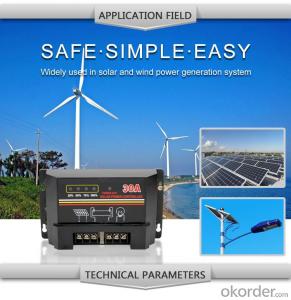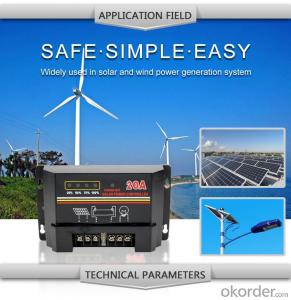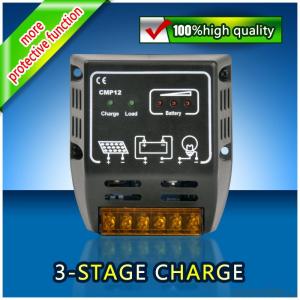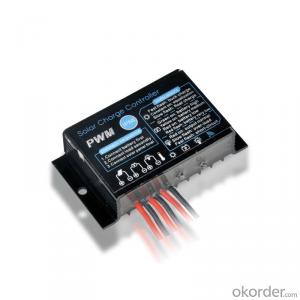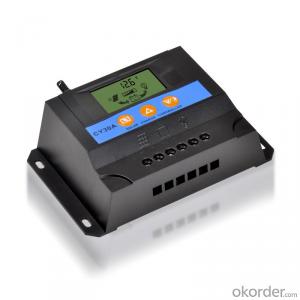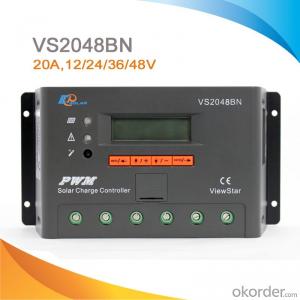Solar Panel Controllers 12v - DM110A Solar LCD Controller with Best Price Hot Selling Model
- Loading Port:
- China main port
- Payment Terms:
- TT or LC
- Min Order Qty:
- 1 unit
- Supply Capability:
- 10000 unit/month
OKorder Service Pledge
OKorder Financial Service
You Might Also Like
Product Introduction
Solar controller is control device which can control solar panel and transform solar energy into electricity then store to the battery bank. Solar controller is the most important part in offgrid system, whose performance has much effect on life expectancy and operation of the whole system, especially the battery expectancy.
Application Areas
Standalone Photovoltaic power station
Standalone Domestic household photovoltaic power system
Mobil communication base stations, expressway and other non-residential regions.
Coastal islands, remote mountainous, border posts for regions shortage of or without electricity.
Government demonstration projects, landscape lighting project etc.
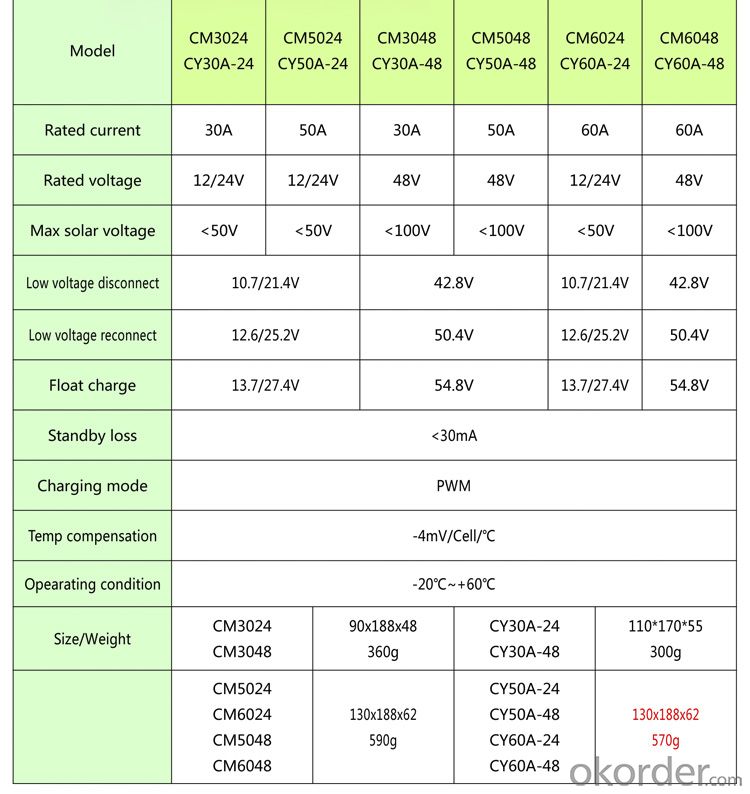
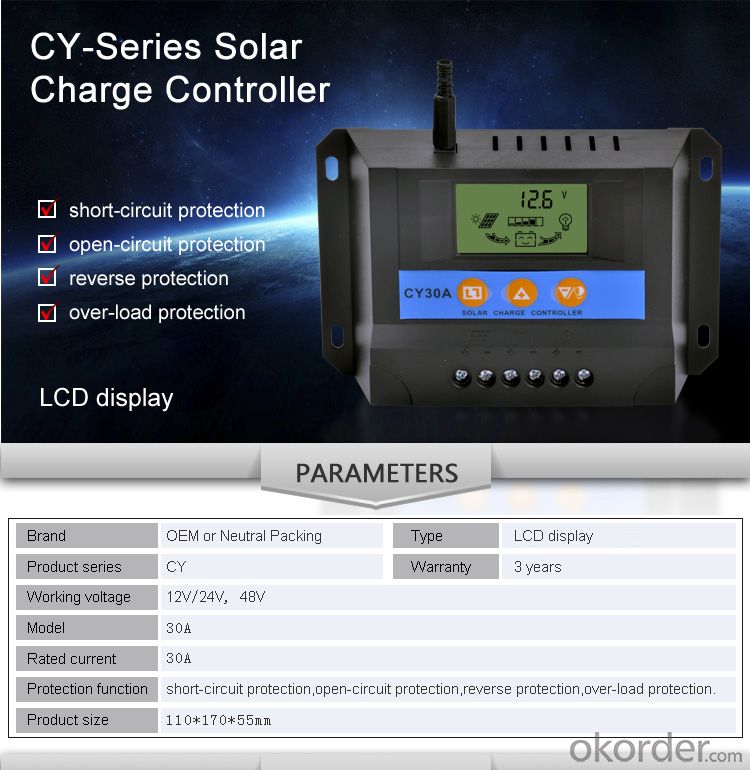
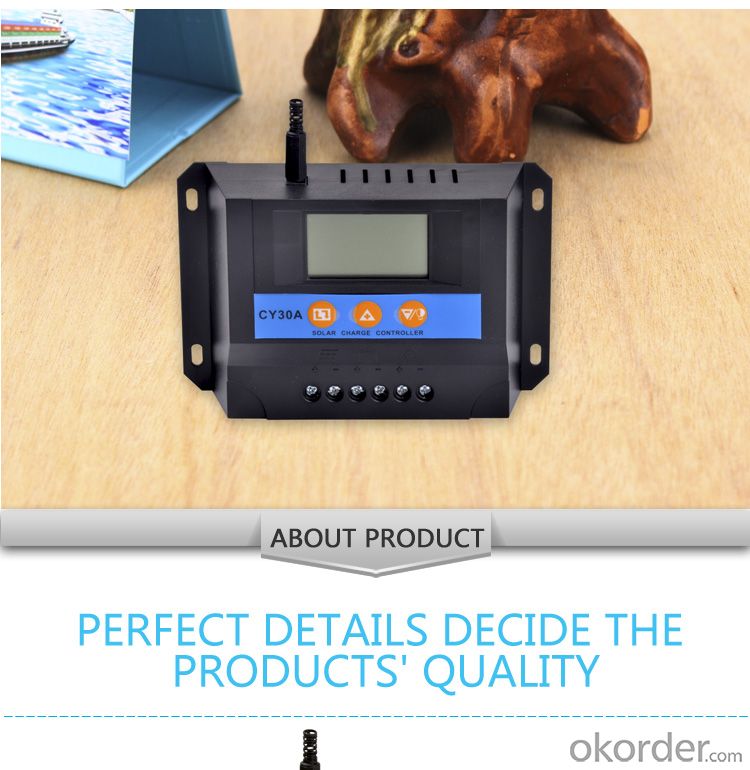
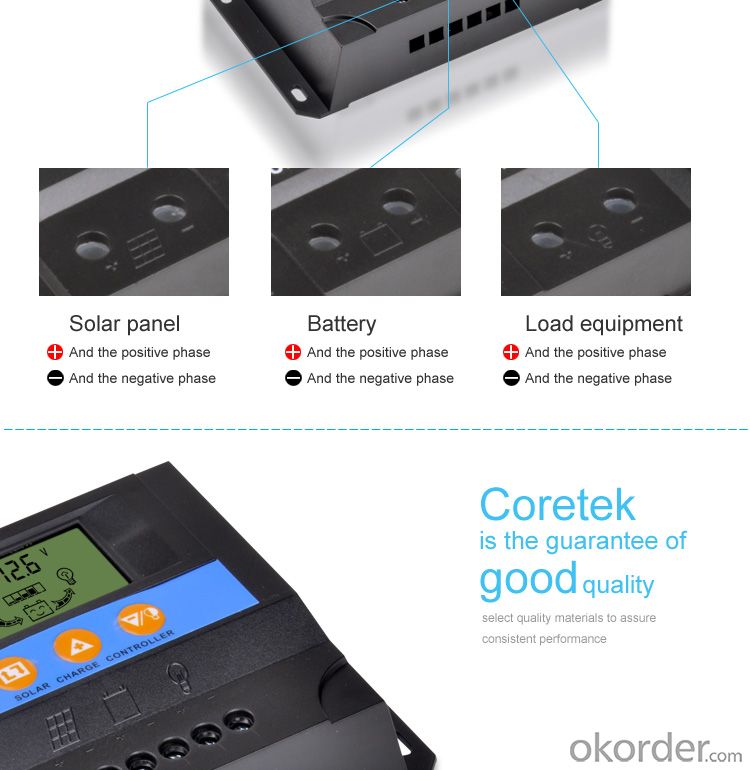
- Q: Can a solar controller be used with solar-powered indoor air purification systems?
- Yes, a solar controller can be used with solar-powered indoor air purification systems. A solar controller is a device that regulates the flow of electricity from solar panels to a battery or directly to a load. It helps to ensure that the solar panels are charging the battery efficiently and protects the battery from overcharging or discharging. In the case of solar-powered indoor air purification systems, the solar controller can play a crucial role in optimizing the use of solar energy. It can be connected to the solar panels, battery, and the air purification system. The solar controller will monitor the power generated by the solar panels and distribute it accordingly, charging the battery during excess sunlight and supplying power to the air purification system when needed. By using a solar controller, the solar-powered indoor air purification system can operate effectively even in low sunlight conditions or during periods of high demand. It provides a reliable and efficient way to utilize solar energy for air purification, reducing reliance on grid electricity and promoting sustainability. Overall, incorporating a solar controller into a solar-powered indoor air purification system enhances its performance, ensures efficient use of solar energy, and contributes to a cleaner and healthier indoor environment.
- Q: Can a solar controller be used in a solar-powered irrigation system?
- Yes, a solar controller can be used in a solar-powered irrigation system. The solar controller is responsible for managing and regulating the flow of electricity from the solar panels to the irrigation system, ensuring that the system operates efficiently and effectively.
- Q: What is the maximum number of charging stages supported by a solar controller?
- The maximum number of charging stages supported by a solar controller can vary depending on the specific model and manufacturer. However, it is common for solar controllers to support up to three charging stages, which typically include bulk charging, absorption charging, and float charging.
- Q: How does a solar controller handle battery voltage regulation?
- A solar controller handles battery voltage regulation by continuously monitoring the voltage of the battery bank and adjusting the charging current accordingly. It ensures that the battery voltage remains within the desired range by automatically reducing or increasing the charging current from the solar panels. This helps prevent overcharging or undercharging of the batteries, maximizing their lifespan and performance.
- Q: What is the role of a remote monitoring system in a solar controller?
- The role of a remote monitoring system in a solar controller is to collect and analyze data from the controller, panels, and other components of the solar system. It allows for real-time monitoring of the system's performance and provides important information on energy production, battery status, and any potential issues or malfunctions. This enables remote troubleshooting, efficient maintenance, and optimization of the solar system's efficiency and overall performance.
- Q: How does a solar controller prevent thermal runaway in batteries?
- A solar controller prevents thermal runaway in batteries by monitoring and regulating the charging process. It ensures that the battery is charged at the optimal voltage and current levels, preventing overcharging or over-discharging. By maintaining a stable charging rate, the solar controller prevents excessive heat buildup in the battery, which is a common cause of thermal runaway.
- Q: Are there any safety features in solar controllers?
- Solar controllers have multiple safety features. One of the main ones is overcharge protection. These controllers regulate the amount of current flowing into the batteries to prevent overcharging. Once the batteries are fully charged, the solar controller automatically reduces or stops the charging process to avoid battery damage. Another safety feature is over-discharge protection. These controllers monitor the battery voltage and prevent them from discharging below a certain threshold. This safeguards the batteries' lifespan and prevents damage from over-discharging. Short circuit protection is also crucial. If a short circuit occurs, the solar controller detects abnormal current flow and immediately shuts off the circuit. This prevents any harm to the solar panels, batteries, or other connected devices. In addition, some solar controllers offer temperature compensation features. These controllers can adjust the charging voltage and current based on the battery temperature. This ensures optimal charging performance, preventing overheating or damage caused by extreme temperature conditions. In conclusion, solar controllers are equipped with various safety features to guarantee the efficient and safe operation of the solar power system, protecting the batteries, solar panels, and other connected devices from potential hazards.
- Q: Can a solar controller be used with solar-powered indoor ventilation systems?
- Yes, a solar controller can be used with solar-powered indoor ventilation systems. A solar controller regulates the power output from solar panels and ensures the efficient operation of the ventilation system by managing battery charging and maintaining optimal voltage levels.
- Q: What is the role of a solar controller in preventing battery thermal runaway?
- The role of a solar controller in preventing battery thermal runaway is crucial. A solar controller, also known as a charge controller, is responsible for regulating the charging and discharging of batteries in a solar power system. It ensures that the batteries are charged at the optimal level and protects them from overcharging or discharging, which can lead to thermal runaway. Thermal runaway occurs when a battery becomes overheated, resulting in a rapid increase in temperature and potentially causing an explosion or fire. This can be caused by factors such as overcharging, excessive discharge rates, or high ambient temperatures. To prevent battery thermal runaway, a solar controller employs various mechanisms. One of the primary functions is to monitor the battery voltage and temperature. By continuously measuring these parameters, the controller can adjust the charging or discharging current to maintain the battery within safe limits. For example, if the temperature rises beyond a certain threshold, the controller can reduce the charging rate or turn off the charging altogether until the temperature returns to a safe range. Furthermore, a solar controller also incorporates safety features like temperature sensors and thermal shutdown mechanisms. These sensors detect abnormal temperature increases and trigger the shutdown of the charging process to prevent further heating. The controller may also have an alarm system or communication capabilities to alert the user or system operator about any potential issues. Additionally, some advanced solar controllers utilize advanced algorithms and intelligent charging profiles to optimize the charging process and minimize the risk of thermal runaway. These algorithms take into account factors such as the battery chemistry, capacity, and ambient conditions to deliver the most efficient and safe charging strategy. In summary, the role of a solar controller in preventing battery thermal runaway is to regulate the charging and discharging process, monitor battery voltage and temperature, implement safety features, and employ intelligent algorithms to maintain the battery within safe operating conditions. By doing so, it helps ensure the longevity and safety of the battery in a solar power system.
- Q: How does temperature affect the charging process in a solar controller?
- Temperature can affect the charging process in a solar controller by influencing the efficiency and performance of the system. Higher temperatures can cause the solar panels to heat up, which reduces their efficiency and lowers the overall charging capacity. Conversely, lower temperatures can enhance the efficiency of the panels and improve charging. Additionally, extreme temperatures can also impact the battery's performance and lifespan, affecting the overall charging process in a solar controller.
Send your message to us
Solar Panel Controllers 12v - DM110A Solar LCD Controller with Best Price Hot Selling Model
- Loading Port:
- China main port
- Payment Terms:
- TT or LC
- Min Order Qty:
- 1 unit
- Supply Capability:
- 10000 unit/month
OKorder Service Pledge
OKorder Financial Service
Similar products
Hot products
Hot Searches
Related keywords
